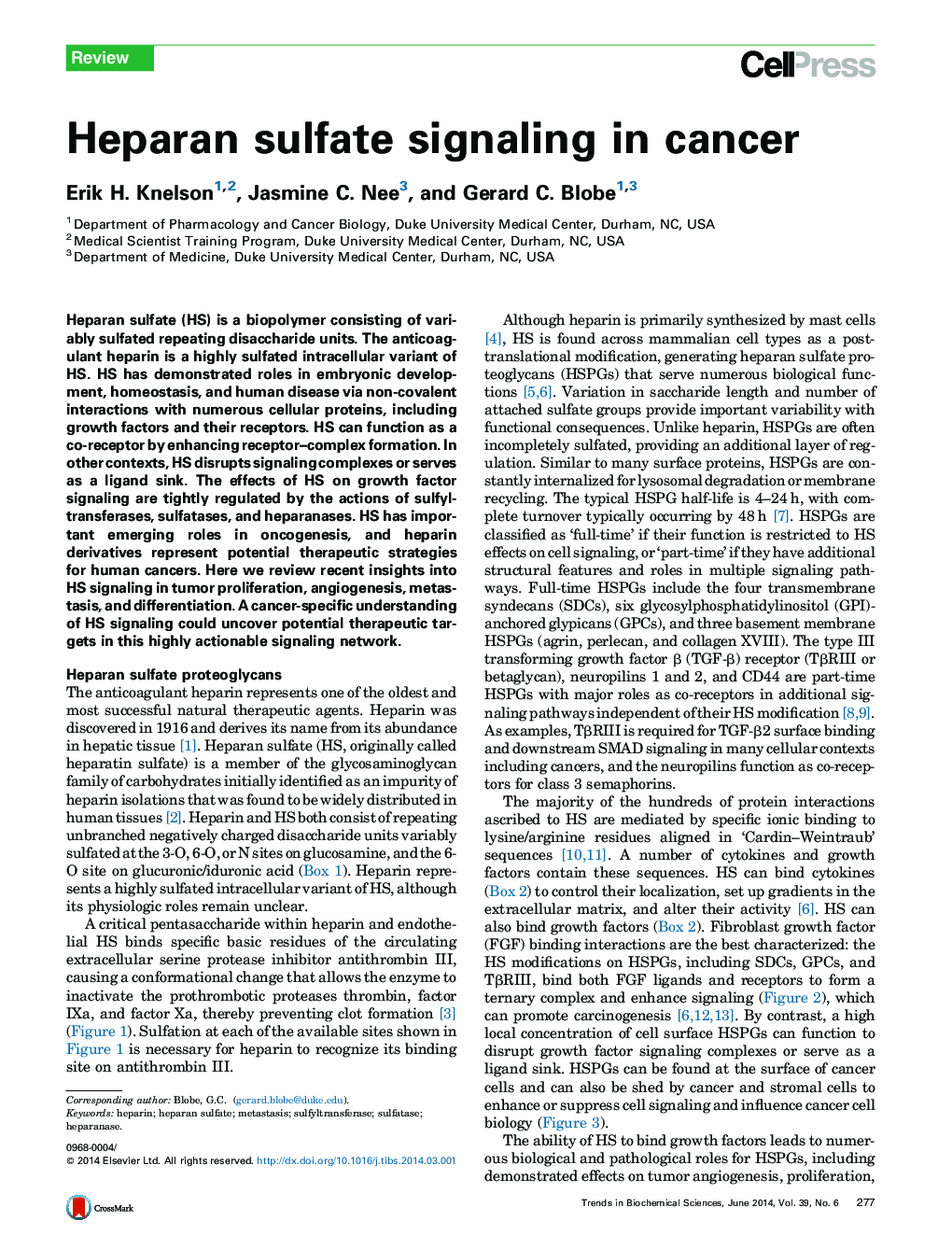| Article ID | Journal | Published Year | Pages | File Type |
|---|---|---|---|---|
| 2030684 | Trends in Biochemical Sciences | 2014 | 12 Pages |
•Heparan sulfate represents a saccharide biopolymer family including the anticoagulant heparin.•Heparan sulfate signaling is highly ordered and tightly regulated, involving numerous modifying enzymes.•Heparan sulfate signaling influences tumor proliferation, angiogenesis, metastasis, and differentiation.•Heparins represent emerging therapeutic strategies for human cancers.
Heparan sulfate (HS) is a biopolymer consisting of variably sulfated repeating disaccharide units. The anticoagulant heparin is a highly sulfated intracellular variant of HS. HS has demonstrated roles in embryonic development, homeostasis, and human disease via non-covalent interactions with numerous cellular proteins, including growth factors and their receptors. HS can function as a co-receptor by enhancing receptor–complex formation. In other contexts, HS disrupts signaling complexes or serves as a ligand sink. The effects of HS on growth factor signaling are tightly regulated by the actions of sulfyltransferases, sulfatases, and heparanases. HS has important emerging roles in oncogenesis, and heparin derivatives represent potential therapeutic strategies for human cancers. Here we review recent insights into HS signaling in tumor proliferation, angiogenesis, metastasis, and differentiation. A cancer-specific understanding of HS signaling could uncover potential therapeutic targets in this highly actionable signaling network.
